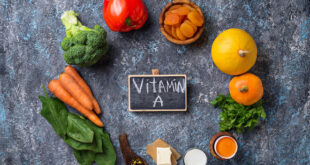 Your digestive system (gut) is one of the most important organs in your body – it digests and absorbs all your nutrients, plus works as a vital barrier to infections and illnesses. Keeping the gut in a healthy state is one of the best things we can do for overall health and what we eat can help make a difference.
Your digestive system (gut) is one of the most important organs in your body – it digests and absorbs all your nutrients, plus works as a vital barrier to infections and illnesses. Keeping the gut in a healthy state is one of the best things we can do for overall health and what we eat can help make a difference.
Probiotics
Probiotics are live 'friendly' bacteria and it's normal for healthy people to have a large population of these living in our large intestine. They are very important in helping to digest food and release nutrients that can then be absorbed. They help to boost our immune system and may help lessen risk of allergies and eczema. Having a strong population of friendly bacteria also means that there is less room for 'bad' bacteria (such as salmonella) to flourish in our guts.
Prebiotics
Prebiotics act as food for friendly bacteria helping them to thrive, and many are common types of dietary fibre. There are various types of prebiotics that are either naturally present in foods (such as fruits, vegetables and beans) or may be added to foods (such as milk drinks, in the form of inulin or resistant maltodextrin).
Fruits and vegetables
Fruits and vegetables are naturally high sources of fibre and antioxidants which are both important for good gut health. Increasing levels of fruits and vegetables in the diet can also help to lessen the risk of some cancers. Remember that using a variety of types of fruits and vegetables (including fresh, frozen, and canned) helps to make it easy to eat five or more servings each day.
Fibre
Adequate fibre in the diet is important largely to keep things moving! It's important that food travels through the gut slow enough to allow for nutrients to be released and absorbed, but fast enough helping ensure waste materials are cleared from the body. Fibre is also an important source of prebiotics.
Quick tips for a healthy gut
1. Include plenty of high fibre foods in the diet:
- Add beans to soups and casseroles
- Choose wholegrain varieties of breads and cereals
- Try baked beans over a jacket potato
2. Eat plenty of fruit and vegetables:
- Boost mixed dishes by adding lots of different coloured vegetables
- Have fruit with cereal or try a banana on wholegrain toast
- Keep frozen vegetables on hand to add to the evening meal
3. Tip the balance in your favour – keep the friendly bacteria happy!
- Have a probiotic yoghurt or drink every day
- Eat plenty of prebiotics in beans, wholegrains, fruits and vegetables
- If you or your children have taken a course of antibiotics – boost consumption of probiotics (try milks with added acidophilus), to help restore the friendly bacteria
4. Drink plenty of fluids – water is best
You might also like: Mid-year Resolution – Eat Well!









Join the Discussion
Type out your comment here:
You must be logged in to post a comment.